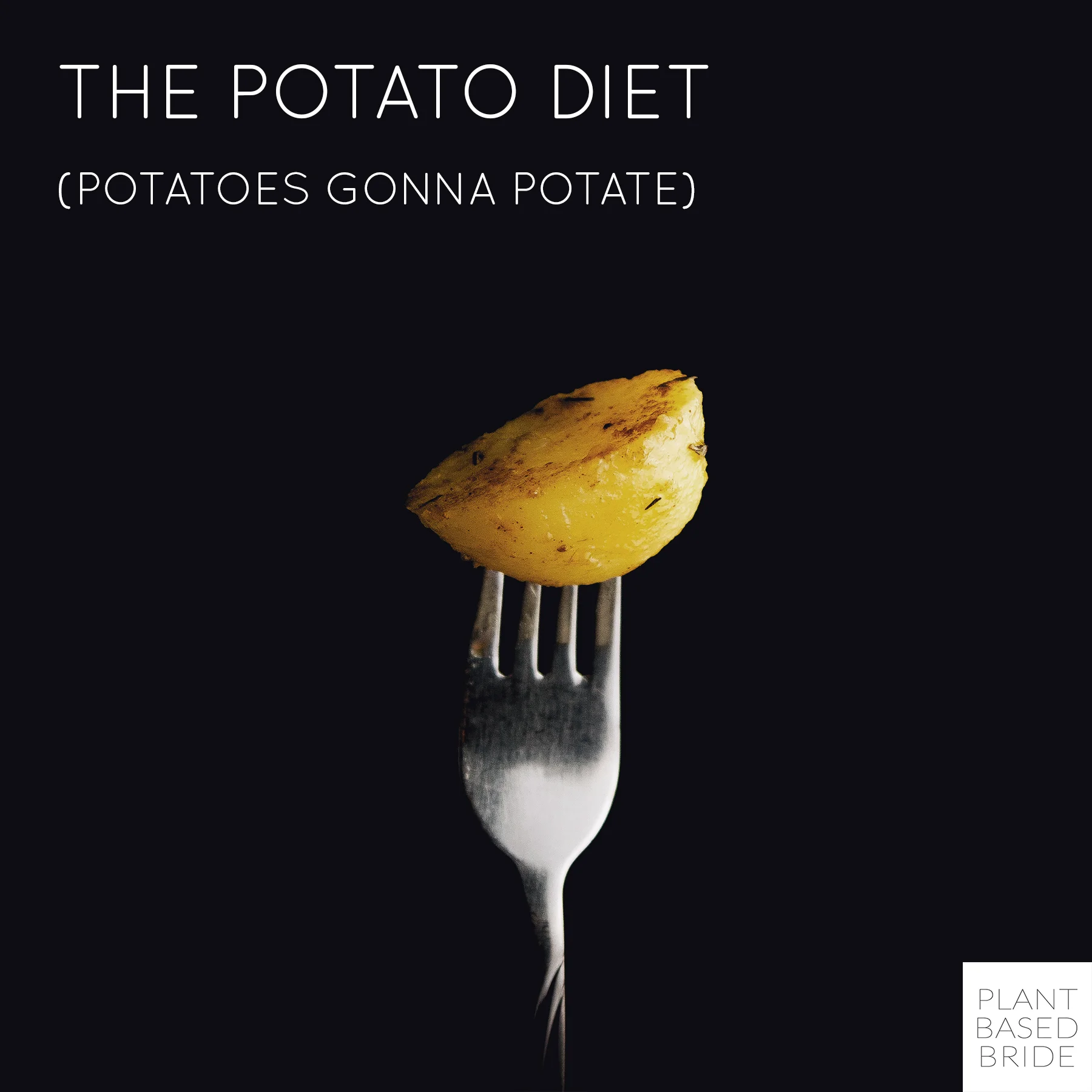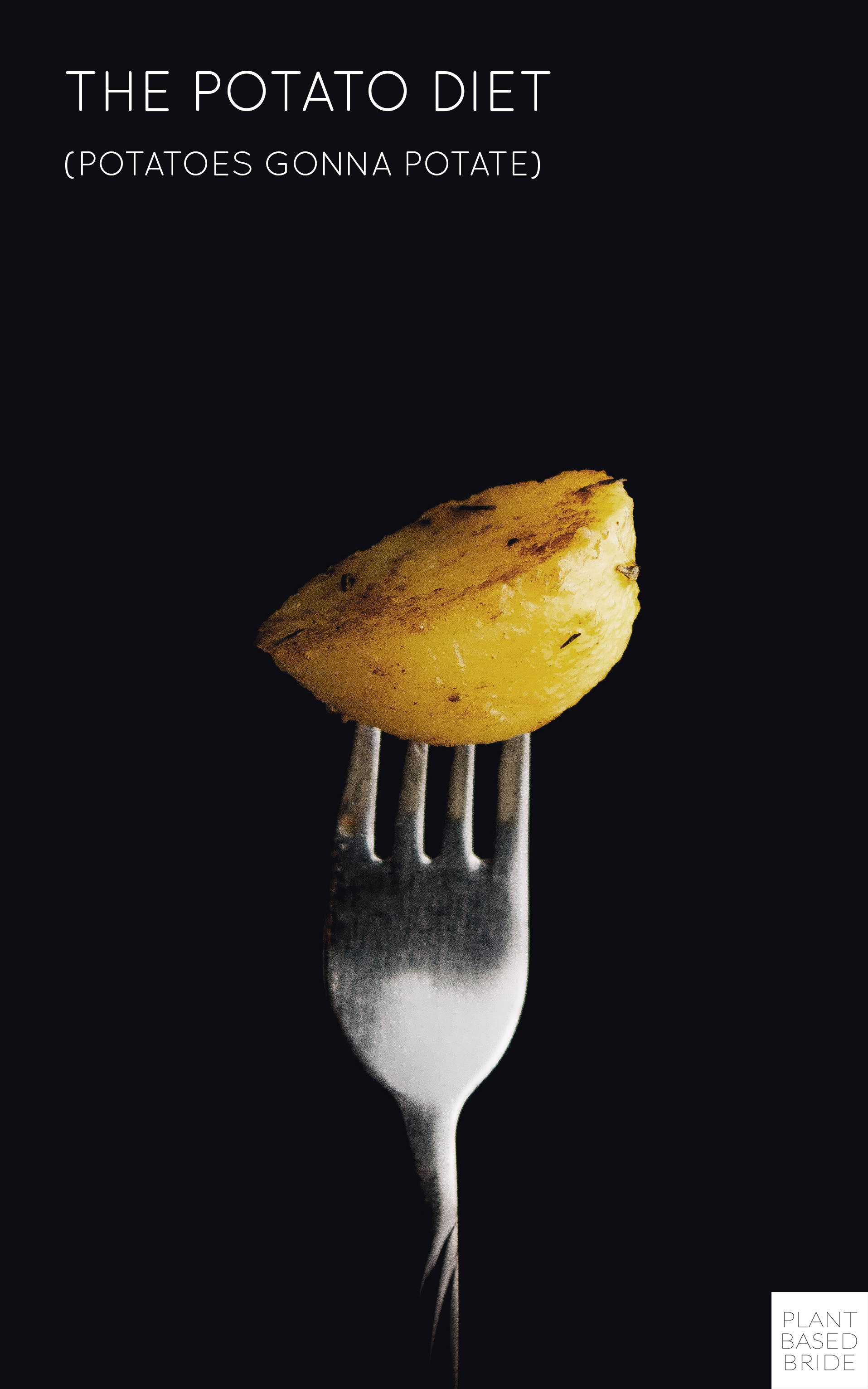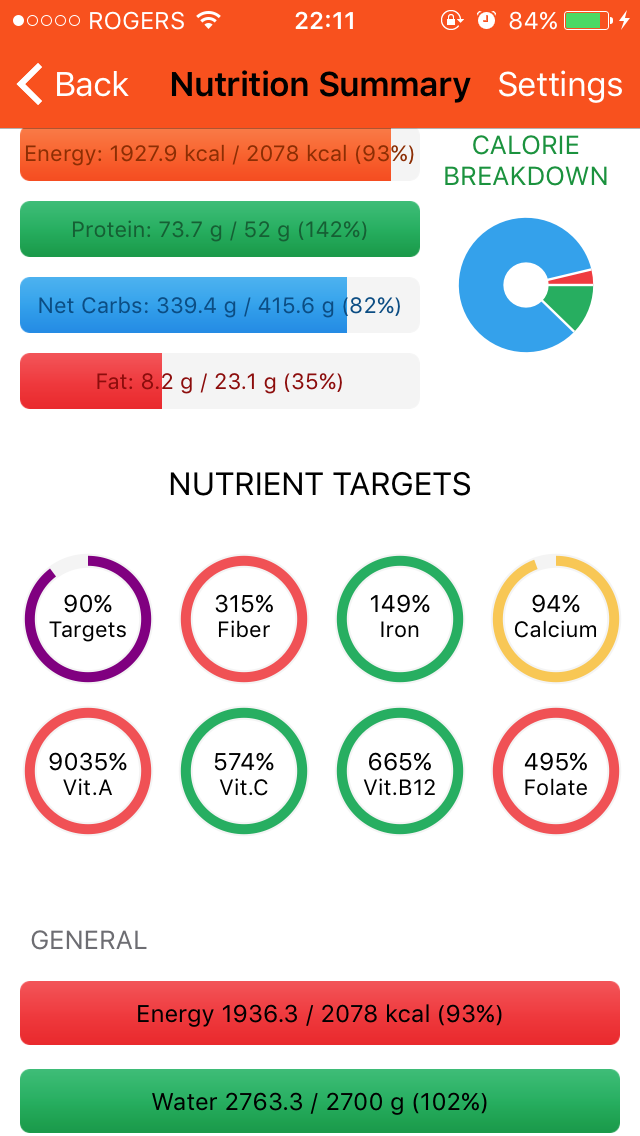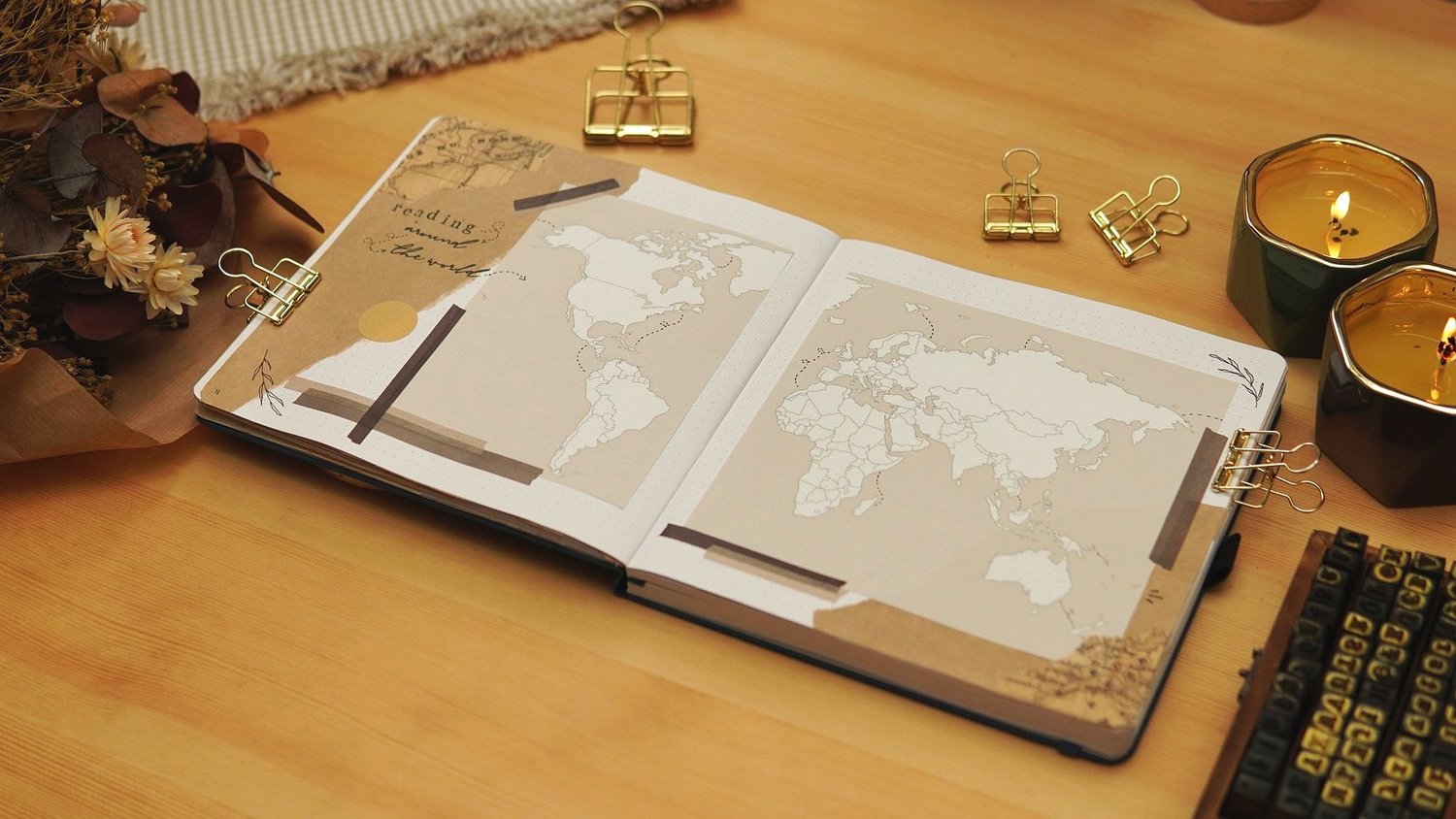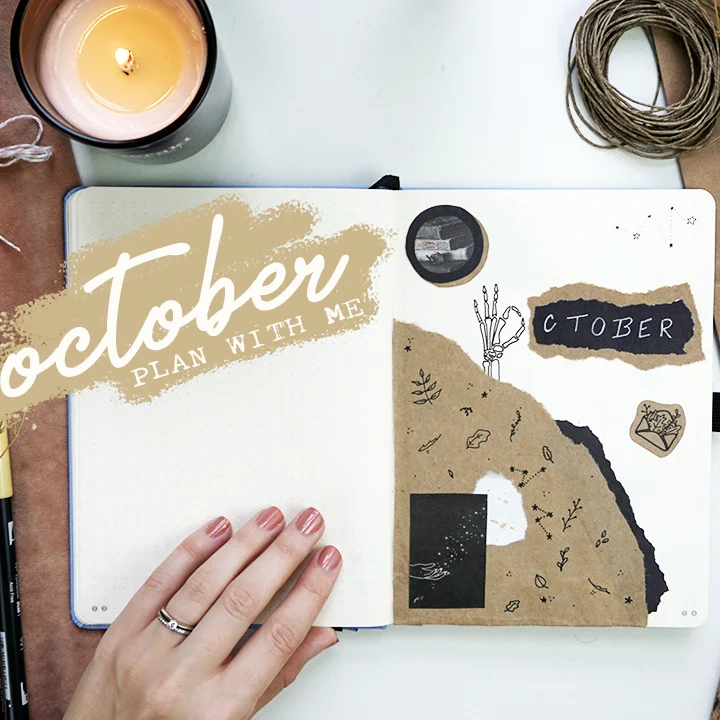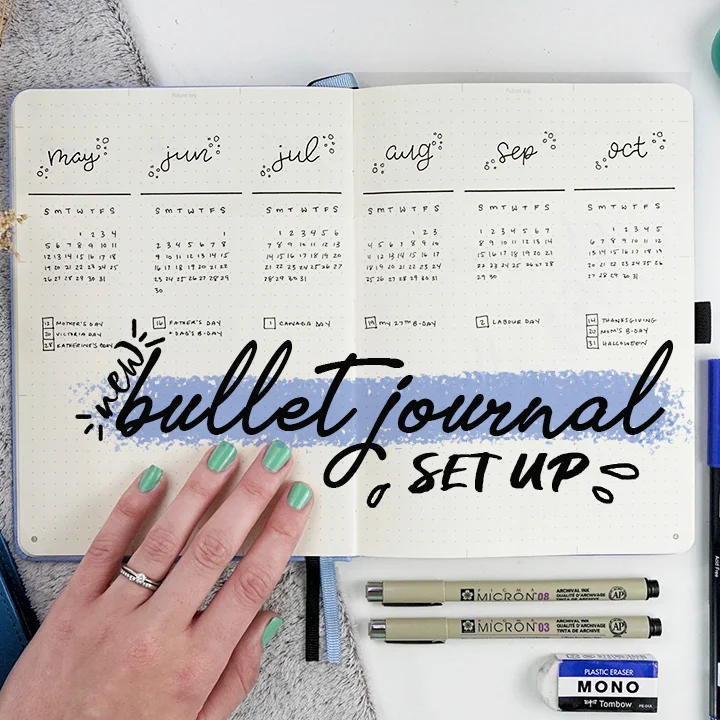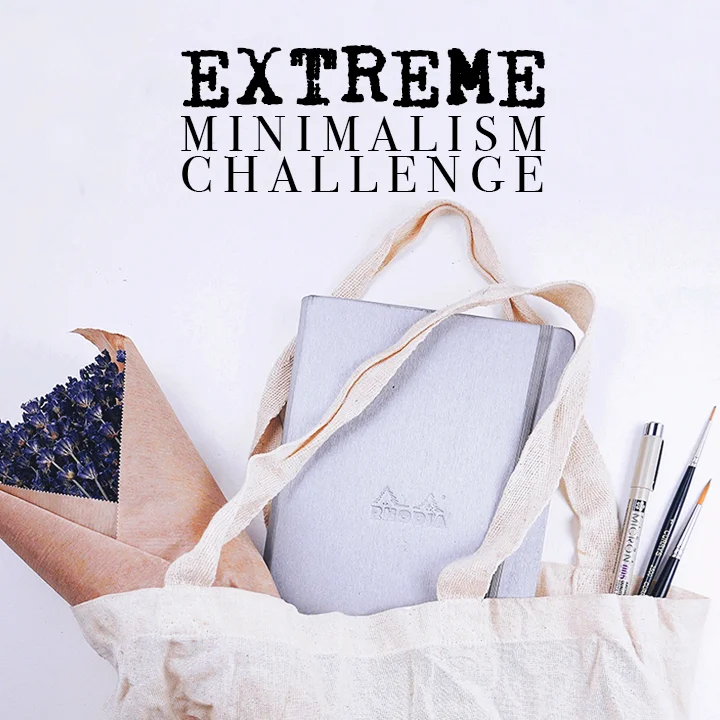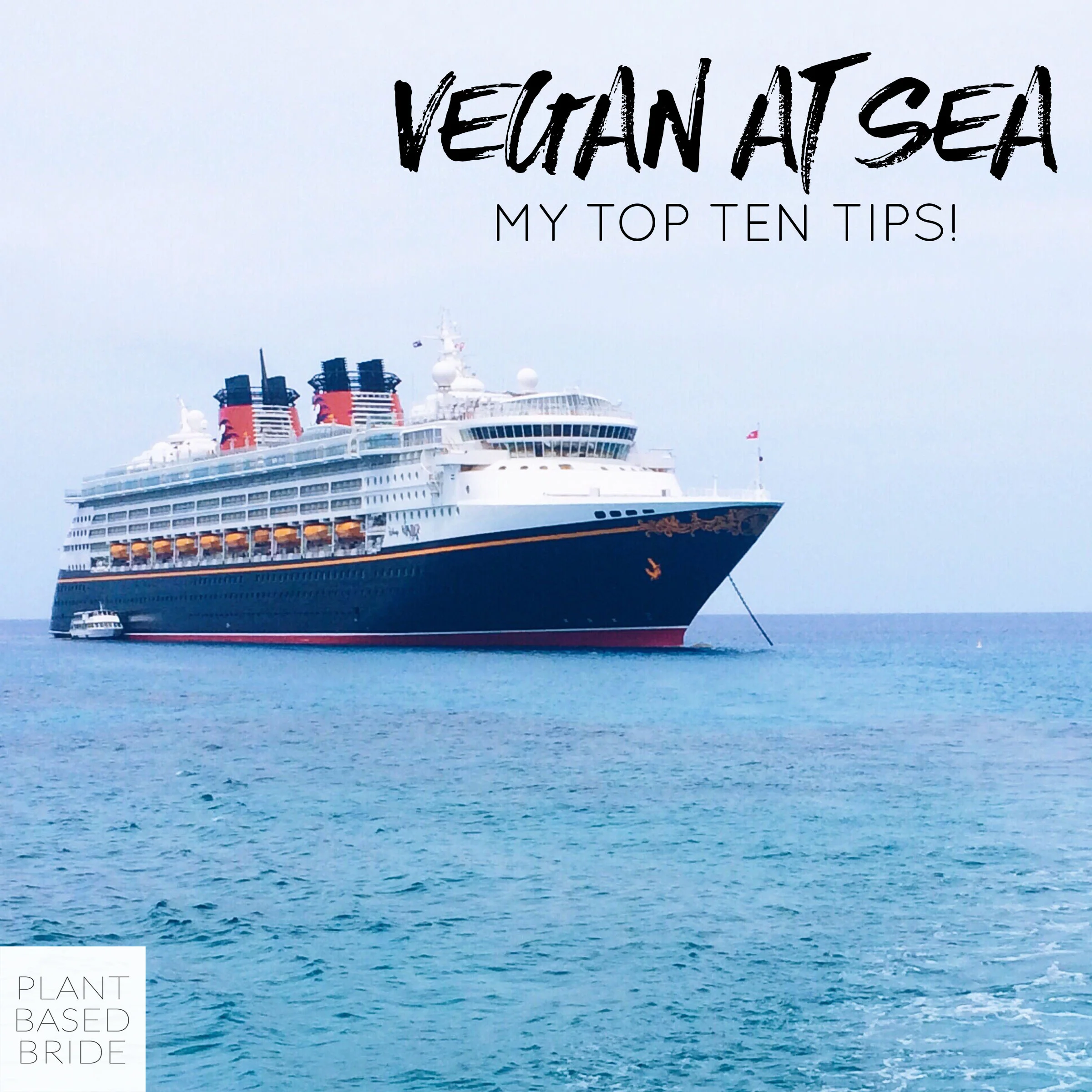
the blog.
The Potato Cleanse (Potatoes Gonna Potate)
All hail the great potato!
Ever heard of the 'Potato Cleanse' or the 'Potato Diet'?
I'm embarking on a 10-day challenge to eat a majority of my calories from potatoes. Because, potatoes gonna potate, am I right?
Potatoes are incredible. They have sustained populations through severe famine. They are a staple in my whole foods plant based diet. They are packed with nutrients. And they are delicious.
What could be better than ten days of mostly potatoes?
All hail the great potato!
Ever heard of the 'Potato Cleanse' or the 'Potato Diet'?
I'm embarking on a 10-day challenge to eat a majority of my calories from potatoes. Because, potatoes gonna potate, am I right?
Potatoes are incredible. They have sustained populations through severe famine. They are a staple in my whole foods plant based diet. They are packed with nutrients. And they are delicious.
What could be better than ten days of mostly potatoes?
I began the potato 'diet' yesterday. I use the term diet loosely, as this is only a relatively minor shift in my eating habits. As I said, I already eat a whole foods plant based diet with few overt fats and a lot of potatoes, but for the next week and a bit I'm going to increase the percentage of calories from potatoes in my diet and eliminate other starches, legumes, and fruit. I wouldn't eat this way for any long-term period (I love fruit, beans, and rice way too much for that and wholeheartedly believe that they're essential to good health), but it is far better than many 'cleanses' and 'diets' out there that do not provide enough nutrients or calories and contain processed 'foods' or no food at all.
So what is and isn't allowed?
Basically, the idea is that you eat potatoes and non-starchy vegetables seasoned with spices and accompanied by oil and fat-free dressings and sauces, if you so wish. The point is to get the majority of your calories from potatoes and to supplement with other vegetables such as leafy greens.
What does a typical day look like?
Whatever you like! As an example I'll show you my first day on the diet:
Breakfast
- plain yellow potato fries
Snack
- more yellow potato fries
Lunch
- even more yellow potato fries and a baked sweet potato with sriracha salt
Snack
- baby carrots and cherry tomatoes
Dinner
- two huge salads (romaine, kale, cucumber, tomato) with a little nutritional yeast and vinegar as a dressing
- yellow and sweet potato chips with sriracha salt
- 2 baked sweet potatoes with pepper
When I plug my day into cronometer I come up with these results:
As you can see, I'm getting more than enough calories and 142% of my protein requirements!
All of my vitamins are covered with the exception of vitamin D (for which I spend time outside and take a supplement) and vitamin E. I'll be sure to pick up some spinach and broccoli to get enough for the remainder of the 10 days.
Minerals are also on point, though I'm just shy on calcium. The addition of spinach and broccoli will help on this front as well!
I consumed a ratio of omega 6:omega 3 of 1:5 which is far closer to the ideal of 1:1 than the SAD average of 16:1!
Where do you get your protein? From potatoes!
Why am I doing this?
I have a few reasons for trying out the potato diet.
- I ate barely any potatoes while on the ship and I missed them dearly.
- Potatoes are cheap and I've been saving for a wedding.
- Jason is away and it makes meal prep simpler to focus on one main source of calories.
- My diet hasn't been as clean as I would like since returning home and I want to kick start my way back into my preferred way of eating.
- I've been breaking out and I want to try removing potential causes of inflammation for a period of time before reintroducing them one at a time in the hopes of finding the culprit.
Will it do what I want it to? I hope so! But if not, it will at least be delicious :)
If you have further questions don't hesitate to leave them in the comments below!
Do you eat potatoes on a regular basis? How do you like to eat them the most? Would you ever consider trying the potato diet?
Until next time,
Vegan At Sea: My Top 10 Tips!
You know how to be vegan at home. You’ve learned what you like, found a local farmer’s market, frequent your favourite restaurants and have a routine. So what happens when everything gets shaken up? Maintaining a vegan diet in restrictive circumstances can be difficult, something I know all too well from working on cruise ships!
I have spent a cumulative 7 months at sea, and I can tell you it hasn’t always been easy. I hope that my top ten tips for maintaining a vegan diet at sea (or wherever you may find yourself) can help you on your journey. Let’s get started!
You know how to be vegan at home. You’ve learned what you like, found a local farmer’s market, frequent your favourite restaurants and have a routine. So what happens when everything gets shaken up? Maintaining a vegan diet in restrictive circumstances can be difficult, something I know all too well from working on cruise ships!
I have spent a cumulative 7 months at sea, and I can tell you it hasn’t always been easy. I hope that my top ten tips for maintaining a vegan diet at sea (or wherever you may find yourself) can help you on your journey. Let’s get started!
1. Take a deep breath. More damaging than all the eventualities you have begun imagining is the stress and anxiety that worry brings. You are vegan for a reason, and you have the fortitude to remain true to your values no matter the obstacle. The more you get centred, grounded, and believe in yourself the easier it will be! Try meditation. I am definitely no expert, but I find even a couple of minutes a day make a huge difference in my ability to handle stress and anxiety! (Headspace is a great introduction to meditation!)
2. Ease up. I understand that 100% vegan is the only way for you, it is for me as well. But is oil free just as important? Or high carb? You may need to take a step back from your ideal dietary habits when you’re away from home and focus on keeping it vegan. I’m not saying you should through nutrition and health out the window, but don’t hold yourself to such a high standard that everything falls apart!
3. Remember why you’re vegan. When times are tough, it’s important to keep your motivation in plain view. My favourite way to do that is to continue to work on my blog and to listen to vegan podcasts (check out my resources page to see my recommendations). Perhaps for you it’s bringing along your favourite book on veganism, loading up a hard drive with documentaries, or volunteering in your free time. Whatever it may be, keep your inspiration close! You could even make a page with all of your reasons and put it up where you’ll see it everyday. Here are my reasons as an example!
4. Take it back to the basics. The longer we’re vegan, the more our tastes evolve. We become more adventurous, try new ingredients and combinations, and get into the latest superfoods. When you don’t have access to these foods it may feel restrictive. I suggest you take this as an opportunity to go back to basics. Simple is definitely the way to go! When I’m on the ship I eat a lot of whole fruits and vegetables, both raw and steamed. A typical day would be lots of whole fruit for breakfast, a large salad with beans and some fruit at lunch, fruit for snacks, and rice and beans with vegetables and a salad for dinner. It may not be exciting, but it’s healthy, satisfying, simple, and nutritious. (Feel free to print out my vegan food pyramid to keep with you!)
5. Remember to practice self care. it can be difficult to be constantly surrounded with people consuming animal products, believe me, i know. Remember to be kind to yourself and take time for yourself to deal with the stress tat can bring. Be understanding and gentle with yourself, and try to focus on what you're doing to help rather than on the suffering on others’ plates. I love to maintain a daily yoga and meditation practice while living on the ship to feed my soul and find peace amongst many stressors. // I personally recommend Banana Blondie's yoga videos and Claire from Self Taught Yogis!
6. Take advantage of opportunities. Have a day off? Find a vegan or vegan-friendly restaurant and treat yourself to a great meal! Grab a smoothie or fresh juice on your break. While these may be costly and feel like a luxury, it’s important to treat yourself and reward your dedication!
7. Find like-minded individuals. There are more vegans, vegetarians, flexi-tarians, and dairy-free folks than it may seem. Focus on your similarities rather than your differences and engage in meaningful discussions about the things you’re passionate about! You never know when something you say in passing may plant a seed in someone’s mind or heart!
8. Eat enough! This one can be tough, but is so important! I don’t need to tell you that as a vegan you need to eat a higher volume of food than someone eating a standard omnivorous diet, but for some reason we forget when we’re dropped into a new environment (me included!) It can be almost embarrassing to eat far more than your peers at every meal, I completely get it. But it’s also kind of awesome! Not only can you eat far more than them consistently and maintain your weight (or even lose), you are promoting far greater health! Once again, you never know what kind of interest you may spark in someone else by eating huge quantities of fresh, healthy, delicious looking food and maintaining a slim figure and vibrance!
9. Be prepared. If you can, always carry fresh fruit or another whole-food plant based snack with you. It’s far better to be prepared than to end up hungry with no vegan options!
10. Keep it in perspective. For most of us, a change to our routine such as working on a cruise ship is not a permanent one. Remember that, while it may feel difficult in the beginning, slight inconvenience for you is nothing compared to the suffering you are preventing! Hold your head high and keep on making that difference!
And there you have it! My top ten tips for keeping veganism simple while in less-than-ideal circumstances. I encourage you to print the resources I created for this post to keep with you. You never know when they may come in handy!
I also ask that if you have any further questions that you leave a comment below or email me at plantbasedbride@gmail.com so I can help you out!
Until next time,
The Vegan Food Pyramid
What do vegans actually eat? That's a question I hear more often than you'd think. And the answer is very simple.
Vegans eat plants!
Now obviously there are lots of ways to achieve that. High or low carb, raw or cooked, whole foods or junk foods, vegans eat it all.
Me? I like to eat a whole foods high carb nutrient dense plant based diet. Bit of a mouthful, right? (Pun intended.)
So what does that actually look like?
Let me show you!
What do vegans actually eat? That's a question I hear more often than you'd think. And the answer is very simple.
Vegans eat plants!
Now obviously there are lots of ways to achieve that. High or low carb, raw or cooked, whole foods or junk foods, vegans eat it all.
Me? I like to eat a whole foods high carb nutrient dense plant based diet. Bit of a mouthful, right? (Pun intended.)
So what does that actually look like?
Let me show you!
To make it super clear for you, I made this handy-dandy graphic to show you exactly what I mean!
My diet is based off of YEARS of research into nutrition, and is a culmination of all of the most compelling evidence I have seen. I've written quite a few posts here on my blog on the topic of nutrition exploring protein, iron, calcium, and more (see every post I've written on nutrition here) and have also listed many of my favourite books and other resources here!
Let me break it down for you.
My focus is on whole foods, as I believe the less processed a food the healthier it is for our bodies. Food science has come a long way in a short period of time, and I guarantee our bodies have not evolved at the same pace. Our cells don't recognize processed foods and therefore can not utilize and expel them in an efficient manner. If you want your digestion to be a well-oiled machine (and top-notch health) whole foods are the way to go!
I eat high carb because carbohydrates are the fuel our bodies need! We run on carbs. Carbs are not the enemy! They give us energy and make us feel good. Ever wonder why you love sweet things and crave sugar? Because sugar is our fuel, just like gasoline in a car! You wouldn't try to run a car on sugar water any more that you'd try to live off of gasoline. Why force your body to do extra work to get the energy it sorely needs to keep your vital functions going? Especially when carbs taste oh so good!
I aim to eat lots of foods that have a high nutrient to calorie ratio, because the more nutrients I can get the better! Which foods pack the biggest nutrient punch? Vegetables and fruit. I encourage anyone trying to improve their health to start with increasing their consumption of vegetables of all types (including starches), fruit, and especially leafy greens (the most nutrient dense of them all!)
Lastly, I eat plant based because I truly believe that animal products are deleterious to our health. Plant foods provide everything we need without the negative health effects that come with the consumption of meat, eggs, and dairy. I also eat this way because it aligns with my ethical beliefs. I have written loads of posts both subjects, which you can find in my blog post archive!
Now, I'm human (just like you, I presume!) and I don't always eat a perfect diet. That's why I included the 'other' category. This is for those times when you just REALLY want a vegan brownie chock-full of oil and sugar. And you should have it! We only live once and treats should definitely have a place in our lives. The biggest thing to remember is that a treat doesn't happen every day!
I also want to remind you to DRINK ENOUGH WATER! Yes, I am yelling. It is so important. Don't complain. Just do it. Your body will thank you a thousand times over. And then you'll thank me!
Oh, and don't forget to stay on top of your B12 and vitamin D intake. If you don't know why B12 is important, read my post on the subject here. And vitamin D is a problem we are all facing as a species, now that the majority of us spend our lives indoors or slathered in sunscreen. Get out in the sun every single day or be sure to take a (vegan!) D3 supplement!
What kind of vegan diet do you eat? I would love to hear about it in the comments! Also, let me know if you would be interested in a 'what I eat in a day' video on my YouTube channel!
Until next time,
Why You Need To Get More Fibre
The Standard American Diet is dangerously low in fibre, and yet no one seems to be too concerned. They should be. Learn all about fibre and why YOU (yes, you) need to be eating more of it in today's blog post!
The Standard American Diet is dangerously low in fibre, and yet no one seems to be too concerned. They should be. Learn all about fibre and why YOU (yes, you) need to be eating more of it in today's blog post!
WHAT IS FIBRE?
Fibre is the structural component of plants (the equivalent of an animal's muscles and bones) that humans cannot digest, often known as roughage. Any transformation that occurs to the fibre we eat is due to the bacteria in our guts, rather than our own digestive system. There are two types of fibre: soluble and insoluble.
Soluble fibre is found in oats, legumes, vegetables, barley, and fruits and is great for reducing blood glucose and cholesterol in the body as well as preventing diarrhea.
Insoluble fibre is found in whole grains, nuts, fruits, and vegetables. This type of fibre prevents constipation and certain types of cancer.
WHY DO WE NEED IT?
Fibre is a necessity for a healthy diet. It:
- helps to control blood glucose;
- reduces the risk of obesity due to its ability to increase satiation;
- regulates bowel movements;
- manages blood pressure and cholesterol (reducing the risk of heart disease), and;
- reduces the risk of cancer.
Not too shabby, eh?
Fibre and Heart Disease
Fibre is inversely associated with the incidence of coronary heart disease, in other words, the more fibre you eat the less likely you are to suffer from heart disease. This is due to fibre's positive impact on heart health by reducing bad cholesterol (LDL) and managing blood pressure.
How does fibre reduce cholesterol? Viscous soluble fibre (found in barley, oats, sea vegetables, shiitake mushrooms, cherries, grapes, berries, citrus fruits, and other foods) has the ability to bind with cholesterol in the intestine, preventing its assimilation into the body by eliminating it in the stool instead.
Check out this study for more detail!
Fibre and Diabetes
From the Canadian Diabetes Association website:
'Soluble fibre may help control blood sugar by delaying gastric (stomach) emptying, retarding the entry of glucose into the bloodstream and lessening the postprandial (post-meal) rise in blood sugar. It may lessen insulin requirements in those with type 1 diabetes. Because fibre slows the digestion of foods, it can help blunt the sudden spikes in blood glucose (sugar) that may occur after a low-fibre meal. Such blood sugar peaks stimulate the pancreas to pump out more insulin. Some researchers believe that a lifetime of blood glucose (sugar) spikes could contribute to type 2 diabetes, which typically strikes after the age of 40, and more than doubles the risk of stroke and heart disease.'
Another great aspect of high-fibre meals? Their positive impact on blood sugar levels can continue for hours, even after other meals have been eaten. And there's something else - high fibre meals have been shown to significantly increase production of the blood sugar reducing hormone glucogon-like peptide 1 (GLP-1). This GLP-1 response is triggered not by the presence of soluble fibre, but by the products created through the fermentation of fibre by bacteria in the large intestine.
Essentially, if you want to control your blood sugar, you want to eat more fibre.
Fibre and Obesity
Fibre is well-known to increase satiety without adding calories and therefore encourages the maintenance of a healthy weight. This is largely due to fibre's effect of the speed of gastric emptying, in other words, fibre slows down the digestion process, keeping you full for longer. It also lowers the caloric density of the diet, meaning that a higher volume of food can be consumed for the same amount of calories.
Another benefit of fibre-rich foods for satiation? They often require more chewing than low-fibre foods - and the more you chew, the more satiated you feel. Cool, right?
Check out the following studies for more on the link between fibre and obesity: Study One, Study Two
Fibre and Colon and Bowel Health
It's time to talk about soluble and insoluble fibre again! You can't get off THAT easily.
Soluble fibre is broken down in the gut by colonic bacteria resulting in energy and gas. This type of fibre produces a gel-like substance in stool which binds to other substances (such as cholesterol) and removes them when the stool is eliminated. It also slows and regulates gastric emptying (as I previously mentioned) which results in more regular bowel movements.
Insoluble fibre is not so easily broken down in the gut, however it holds water extremely well (up to 15x its weight) and therefore aids in increasing the weight and size of stool as well speeding up the rate of food passage through the digestive system.
Consuming the right types of fibre in the proper amounts can aid in reducing the symptoms of IBS including abdominal pain, constipation, diarrhea, incomplete evacuation, and excessive gas. Learn which types of fibre aid in resolving each symptom here.
What about colon health?
Fibre aids our colons by directly fuelling the good bacteria in our gut. When you eat a low-fibre diet you are literally starving your gut bacteria, which you need to stay healthy. Different species of bacteria feed on different types of fibre, so eating a wide variety of plant foods is imperative for bacterial balance.
Another way that fibre supports the health of our colon is in their digestion by bacteria. This results in short-chain fatty acids which are then used by the cells of our large intestinal wall as fuel. Without this fuel the cells lining our colon cannot carry out their metabolic activities, and cannot support normal intestinal function.
Fibre and Cancer
A study conducted in 2010 (among others, such as this one) found a clear inverse-association between dietary fibre intake and colorectal cancer risk, meaning the more fibre that was consumed by the subjects, the lower their risk of developing colorectal cancers.
But why does fibre have this effect?
Well, we're not yet entirely sure. What we do know is that scientific evidence for this phenomenon has been accumulating since the 1970s, when the hypothesis was proposed by Denis Parson Burkitt, an Irish surgeon, that dietary fibre reduces the risk of colorectal cancer. This was based on his observation that rural Africans eating a high-fibre diet had low rates of these cancers.
'Several plausible mechanisms have been proposed to explain the hypothesis, including increased stool bulk and dilution of carcinogens in the colonic lumen, reduced transit time, and bacterial fermentation of fibre to short chain fatty acids.' (From the introduction of this 2011 study.)
More and more researchers are delving into this field of study, giving us hope that a definitive answer will be found soon!
HOW MUCH DO WE NEED?
You already know where you can get fibre. It is not found in any animal foods, but is present in abundance in plant foods such as vegetables, fruit, legumes, nuts, seeds, and unprocessed grains.
How much we need, however, is a slightly more complicated question. It is, in fact, possible to ingest too much fibre (which can lead to bloating, abdominal pain, increased gas, and diarrhea), but how much is too much? The conservative recommendation for dietary fibre consumption is 25-30g per day, but as a person on a whole foods plant based diet I eat more in the range of 70-80g of fibre a day (while experiencing none of the aforementioned side-effects of too much dietary fibre).
What gives?
Many experts in the plant based nutrition field see this daily recommendation as more of a bare minimum than an optimal range, and as there has been no upper limit of safe dietary fibre consumption set, see it as a 'more is better' type of situation. I tend to agree with them. The best way to know if you're ingesting too much fibre is to be in tune with your own body and watch for the signals it gives you. However, from my extensive research I have come to the conclusion that it would be VERY difficult indeed to ingest too much dietary fibre without vastly surpassing your daily calorie needs.
In other words, have at it!
I hope you enjoyed this post and learned a little more about fibre than you knew before!
Until next time,
How much fibre do you get in a typical day? Have I convinced you to up that amount?
SOURCES & FURTHER READING
http://www.whfoods.com/genpage.php?tname=nutrient&dbid=59
http://www.eatbalanced.com/why-eat-balanced/why-do-we-need-fibre/
http://www.bmj.com/content/347/bmj.f6879
http://www.diabetes.ca/diabetes-and-you/healthy-living-resources/diet-nutrition/fibre
http://www.ncbi.nlm.nih.gov/pubmed/3032822
http://link.springer.com/chapter/10.1007%2F978-1-4615-6850-6_13
http://www.hsph.harvard.edu/nutritionsource/fiber-and-colon-cancer/
http://www.jjs.me.uk/patientinfo/faf.html

